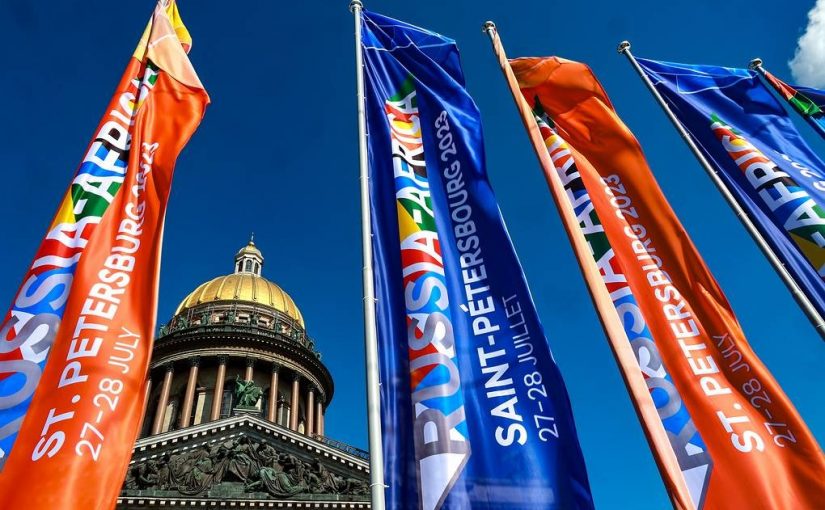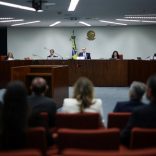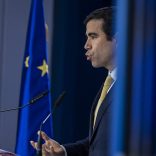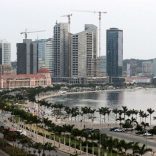Nestle, Barry Callebaut, re.green to restore areas in Brazil's cocoa, coffee regions
CPLP: Most Portuguese speaking African countries represented at Russia-Africa summit │ Lusa

The second edition of the Russia/Africa summit, which began on Thursday in St Petersburg, takes place in a completely different geopolitical environment than the first one in 2019, with the effects of Russia’s invasion of Ukraine marking the event.
The Russian invasion marks the two-day proceedings with heads of state, government, ministers and diplomats from 49 of the 55 African Union member states, according to Alexander Polyakov, deputy director of the Russian foreign ministry’s Africa department.
Among the absentees is Cabo Verde, whose prime minister justified the country’s absence to avoid any action that could be interpreted as support for Russia’s invasion of Ukraine.
” Cabo Verde will not participate,” said Ulisses Correia e Silva, adding that the country has been consistent on this issue, and considered that non-participation in the summit will have no implications, since the country makes its choices and has already made its choice in this context of war.
The summit has confirmed the presence of only two Portuguese-speaking heads of state (Mozambique and Guinea-Bissau).
According to the data collected by the Lusa agency from the Portuguese-speaking African countries, Guinea-Bissau and Mozambique will be represented at the highest level, with Presidents Umaro Sissoco Embaló and Filipe Nyusi, respectively, while Angola has sent the minister of foreign affairs, Téte António, and São Tomé and Príncipe will be represented by the ambassador in Lisbon, who is also accredited in Moscow.
#SputnikVidéo | L’avion du Président bissau-guinéen a atterri tôt ce matin à Saint-Pétersbourg. Voici comment s’est passé l’accueil d’Umaro Sissoco Embaló à l’aéroport de Poulkovo.#RussiaAfricaSummit#RussiaAfricaSummit2023 pic.twitter.com/Ad6B8PLYxb
— Sputnik Afrique (@sputnik_afrique) July 26, 2023
Equatorial Guinea, which also belongs to the Communities of Portuguese Language Countries, will be represented by its vice-president, Teodoro Obiang Nguema Mangue.
Representaré a G.E. en la 2ª Cumbre Rusia-Africa. Durante 2 dias, los lideres africanos debatirán sobre nuevas propuestas de cooperación en diferentes sectores de desarrollo. A mi llegada, me han recibido con un regalo de bienvenida, cortesía del alcalde de San Petesburgo. pic.twitter.com/pgbpRgVlj3
— Teodoro Obiang Nguema Mangue (@TeodoroObiang17) July 27, 2023
The event is also expected to be marked by the issue of access to Russian and Ukrainian grain (whose sales to Africa have been hampered or even suspended due to the war), the presence of the Wagner paramilitary group in several African countries, and the sale of arms.
Last week, the president of Guinea-Bissau said that the Economic Community of West African States (ECOWAS) is concerned about the presence of mercenaries from the Russian Wagner group in the region, notably in Mali.
The Russian president will receive representatives of 49 African countries, including 17 heads of state, during the proceedings, after earlier criticising what he called “unprecedented pressure” from the United States and France for African countries not to participate in the summit.
For Moscow, the summit signals that it is not isolated internationally.
On the Kremlin’s website, Putin wrote that “today, the constructive, trusting and forward-looking partnership between Russia and Africa is particularly significant and important”.
Russia and African countries are expected to sign an “action plan until 2026” and a series of bilateral documents, as the Kremlin announced, trying to move the relationship beyond defence and arms deals, which have mostly summed up Moscow’s relationship with Africa to date.
However, for Moscow the most important thing, according to international analysts heard by Lusa, is to show an understanding with African states, despite the conflict in Ukraine, which some have condemned at the United Nations.
Russian presidential spokesman Dmitri Peskov announced on Tuesday that Putin will present the proposal to guarantee the supply of cereals and fertilisers to the world market and to the African countries that need them most.
The hot topic of this second summit will be this, after Moscow abandoned a crucial agreement that allowed Ukraine, since the summer of 2022, to export, including to Africa, its cereals through the Black Sea, despite the Russian blockade of ports.
In one year, that agreement allowed almost 33 million tonnes of grain to be moved out of Ukrainian ports, helping to stabilise global food prices and avoid the risk of shortages.
African states are also expected to push for a solution to the war in Ukraine, following a proposal by seven countries, led by South Africa.
The African continent is looking to the St Petersburg summit to see if Russia retains the same economic power it had in 2019.












Leave a Reply
Be the First to Comment!
You must be logged in to post a comment.
You must be logged in to post a comment.